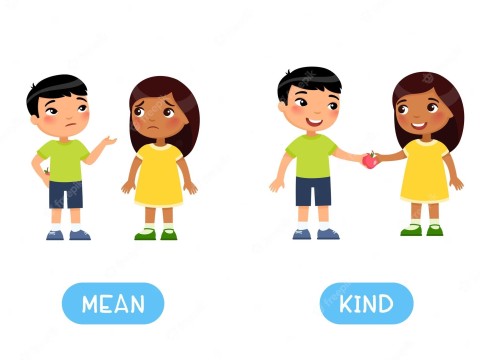重要
mean
/miːn/📚 1909 123 2托福雅思中考高考If you want to know what a word, code, signal, or gesture means, you want to know what it refers to or what its message is. 意思是…
verb [vt. 及物动词]意味着;表示…的意思,作…的解释;打算,意欲;使专门用于;导致,结果是;十分熟识;当真,说到做到;对某人重要
What does "evidence" mean?
是什么意思?
adjective [原级]吝啬的,小气的;不善良的,刻薄的;要发怒的;熟练的,出色的;平均的;简陋的,破旧的;微薄的;<旧>出身卑贱的,社会地位低下的;中庸的,中等的;<美>凶狠的,好斗的
The little girls had locked themselves in the room because Mack had been mean to them.
这些小女孩们把自己锁在房间里,因为麦克对她们不友好。
noun [抽象名词]中庸,折衷;平均数,中数;中间点
Take a hundred and twenty values and calculate the mean.
取120个值计算平均数。
| 过去式 | 过去分词 | 现在分词 |
|---|---|---|
| meant | meant | meaning |
- mean 出现在下面的课文中
- Lesson 125&126 Tea for two mean 动词: 意味着,意思是
- Lesson 5 Youth mean 形容词: 吝啬,小气
- Lesson 60 Too early and too late
- Lesson 14 The Butterfly Effect
- Lesson 25 Non-auditory effects of noise
- Episode 1 46 Linden Street ACT III
- Episode 2 The Blind Date ACT III
单词造句:
动词用法
表示意思或含义:
- What does this word mean? (这个词是什么意思?)
- The symbol '+' means addition. (符号“+”表示加法。)
表示打算、计划或目的:
- I mean to finish this project by tomorrow. (我打算在明天之前完成这个项目。)
- What do you mean by that statement? (你这个说法是什么意思?)
表示引起后果或结果:
- Careless driving can mean accidents. (粗心驾驶可能会导致事故。)
- Being late could mean losing the job. (迟到可能意味着失去这份工作。)
表示对某人有某种意义或印象:
- He means a lot to me. (他对我来说很重要。)
- This painting means nothing to me. (这幅画对我毫无意义。)
名词用法
表示平均数:
- The mean of these numbers is 8. (这些数字的平均数是8。)
表示中间值(在统计中常用的概念):
- The median is the middle value, but the mean is the average. (中位数是中间值,但平均数是所有值的平均值。)
表示目标、意图或目的:
- What is your main mean in doing this? (你做这件事的主要目标是什么?)
形容词和副词
当"mean"作为形容词时,它通常有贬义的含义,表示刻薄的、自私的或恶意的。以下是关于"mean"作为形容词的用法:
刻薄的、恶意的:
- She made a mean comment about his appearance. (她对他的外表发表了恶意的评论。)
- Stop being so mean to your little sister. (别对你妹妹那么刻薄。)
吝啬的、小气的:
- He's too mean to share his food with others. (他太小气了,不愿意和别人分享食物。)
- The boss is known for being mean with bonuses. (这位老板因为奖金分配小气而出名。)
当"mean"作为副词时,它的主要含义是“中等地”或“不友好地”。以下是关于"mean"作为副词的用法:
中等地、适度地:
- She sings neither too softly nor too loudly, but just meanly. (她唱歌既不太轻也不太响,而是适度地。)
- The temperature stays meanly warm throughout the year. (温度整年保持适度的温暖。)
不友好地、刻薄地:
- He looked at her meanly, as if he despised her. (他刻薄地看着她,好像鄙视她一样。)
- The children were laughing meanly at the boy's misfortune. (孩子们刻薄地嘲笑着那个男孩的不幸。)
需要注意的是,"mean"作为形容词和副词的用法在口语中更常见,在正式写作中较少使用。根据具体语境,它们可以表示人的行为态度或某事物的程度。
